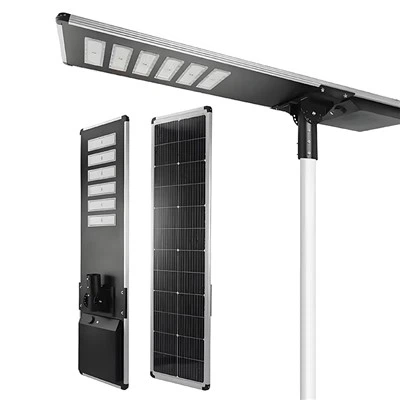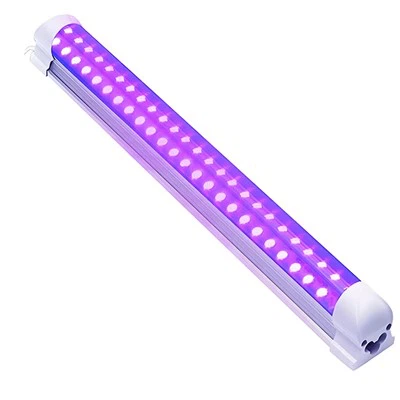Do Chickens Need Light at Night to Lay Eggs?

Many novice chicken keepers start out with a small flock of hens because they believe that raising chickens is simple. the freshly imported poultry is considerably pickier than they anticipated, they later learn.
That's because hens need a few little comforts from home to be content. Do hens, however, need light to produce eggs at night? Do chickens also need light at night?
Additionally, might light aid in boosting egg production throughout the winter? Every homesteader wonders these things when their birds begin to slow down for the first time during the winter.
You may think whether providing light after your new flock has settled into their new coop would be a smart method to encourage them to begin producing eggs.
Do Chickens Require Nightlights?
The short answer to the question of whether hens require light to produce eggs at night is no. No, not always. To keep healthy and lay eggs, chickens need both sunshine and night. Their inability to acquire the necessary sleep at night will result in poor health and behavioral issues brought on by stress.
Your chicks are poikilothermic as babies! For the first few weeks of their lives, they thus need more heating and lighting. Your coop is too chilly if you see your chicks scurrying up to the light and cuddling up close.
Does Light Help Chickens Lay Eggs?
Yes! Here's why light and darkness are important to hens that produce eggs. The bodily systems of the chicken are related to how many hours of daylight they get each day, like those of many other species.
The fact that many plants and animals experience the start of their reproductive processes in the spring is a perfect illustration of this.
And while we consume the majority of the eggs our chickens lay? To introduce fresh life into the world, they lay eggs.
This organic mechanism makes sure that hens breed when it is best for them to rear a brood of chicks. The warmer spring and summer seasons are ideal for this, as they are for the majority of birds.
In relation to chickens?
We now have varieties of hens that will lay almost year-round because to the tremendous egg-laying ability we have improved over the decades.
However, for the chicken to produce eggs, the right amount of daylight hours must be provided. Additionally, they need enough darkness to sleep well.
Your hens won't need light at night unless you reside in the extreme northern or southern hemispheres, when the winter days may be quite short.
to ovulate? A chicken need a minimum of 12 hours of daylight each day. A hen will lay every day during the prime egg-laying season if she receives 14 to 16 hours of sunshine each day.
Is Cracked Corn Good for Hens and Chickens That Lay Eggs?
Does it become dark enough for chickens to sleep?
Sleep is crucial to maintaining your hens' health, just as daylight is to promoting the egg-producing process. Without enough sleep, your chickens will rapidly tire out and develop health issues since sleep is when the body recharges.
If you've ever observed your chickens before bed, you know that they go back to their coop as soon as day turns to night.
They'll settle down on the roost as soon as the light starts to wane. Once it is fully dark, you may glance at them and notice that they are both sleeping. How lovely!
Whatever time the sun sets, they continue in this pattern! As a result, they will go to bed sooner in the winter than in the summer.
How Much Nighttime Do Chickens Need?
Contrary to popular belief, chickens are more like people. They have a relatively similar sleeping schedule, sleeping continuously from sunset to morning each day.
Although we have seen our cockerel Mary dozing down in the middle of his mid-afternoon romp in the dust bath, chickens don't often sleep throughout the day.
to remain healthy and keep its immune system functioning? Every night, a chicken needs to sleep for six to eight hours. similar to you! A suitable sleep regimen for these chickens must include times when possible predators or loud sounds won't wake them up.
The majority of farmers I know like putting lights to their coop at night. However, your adult poultry also needs lots of good sleep. Never leave your adult chicken coop illuminated for more than 16 hours each day. In this manner, you guarantee your flock at least eight hours of peaceful relaxation.
Will a Night Light Increase Egg Laying in Chickens?
Giving hens a light at night might sometimes be beneficial since it can increase egg production.
To lengthen your hens' daylight hours, use artificial lighting to bring them up earlier in the morning. This may encourage maximal egg production to begin earlier in the year and continue into the winter if it occurs gradually.
Therefore, employing light might aid in increasing egg production if you reside in an area where the winter days are very brief. But you must constantly make sure that your chickens have adequate darkness for a restful night's sleep.
But might you employ this technique to maintain your chickens' peak egg output throughout the year?
This is feasible in principle and is similar to how many chickens used for commercial egg production live. But many backyard chickens struggle over the winter! Additionally, having your flock produce an egg every day may be too much for them.
Instead? In order to save their energy and keep warm and healthy, I prefer that my hens stop laying during the winter. Resting them helps them get ready to restart an egg production schedule on a full-time basis once spring returns!
Egg laying requires light in chickens. when the length of the day exceeds 14 hours in the early spring? Your chickens will start to lay eggs. Regular incandescent light bulbs work well as artificial lighting sources since they are simple to introduce.
Does Nighttime Lighting Affect Chickens?
Yes. Chickens may be bothered by light at night! They are unable to distinguish between natural and artificial light. They won't obtain adequate deep sleep if exposed to strong light at night because of this lighting blunder. They could grow worried and unwell as a result of it.
Blackout curtains on your chicken coop may be useful if you reside in a location with very long summer days. With the use of blackout curtains, you can give your chickens the choice of a morning lie-in, ensuring they receive their necessary eight hours of sleep.
Continue reading - Chicken Egg Timing! When Do Chickens Lay Their Eggs?
When the light is on, do chickens sleep?
With the light on, chickens cannot fall asleep because they would wake up puzzled and disoriented. Unwanted behavioral issues including pecking, bullying, and self-mutilation may result from continuous illumination. Allow your hens to sleep in the dark and receive at least six hours of rest each night.
When should I switch off the light in my chicken coop?
Remove all artificial lighting from the coop before your hens go to night. They will put themselves to bed by selecting their preferred location on the roost when the daylight gradually diminishes.
They won't go to bed if artificial light is used and there is no change from light to dark. Your flock can get confused if the light is abruptly turned off every night. Instead of roosting, you could discover them all gathered in a corner!
If you decide to utilize a light in your coop, setting a timer for the morning is the optimum time to turn it on. The chickens will have had enough sound sleep by morning and may be roused by light an hour or two before dawn.
This sleep pattern helps to increase egg production throughout the gloomier winter months and is less disruptive to the sleep cycle.
Do Females Require Light at Night?
Chicks that hatched in an incubator will probably be kept under a heat lamp if you're growing them. They get all the warmth they would receive from their mother thanks to this added heat. Additionally, it emits a bright light.
Should the Heat Lamp Be Turned Off at Night for the Chicks?
In other words, should we also turn off the heat lamp for our chicks if our adult chickens don't need a light at night?
The response is "no way"! Your young chicks need warmth continuously, therefore turning off the heat lamp will cause them to get chilly and hypothermic very rapidly.
A heat lamp emits a soft, comforting glow that is just enough light for your chicks without being very bright. Because of this ideal mix, it may be left on all day and all night without endangering the health of your chicks.
Should My Chicken Coop Have a Light?
Maybe. No light is required at night for your hens. However, adding one to your chicken coop can be a smart move. If you are concerned about your hens, this additional light will make it simpler to check on them. It may help lighten the coop on days when the hens are cooped up inside due to bad weather.
Lights also aid with coop cleaning and clutter management. Adding light is thus probably a good idea. However, the most important thing is to let your hens sleep for extended periods of time. without a harsh light shining in their direction!






